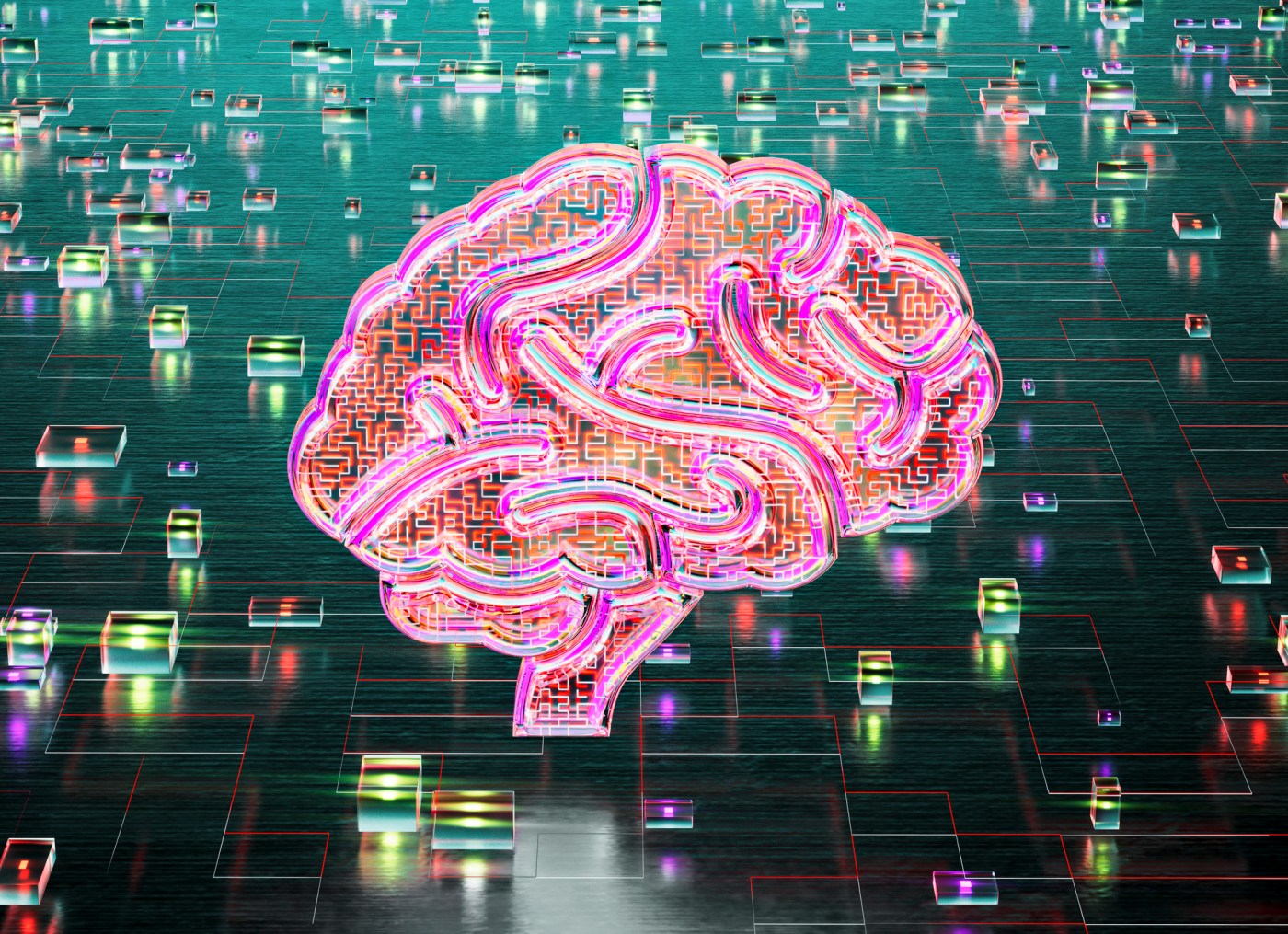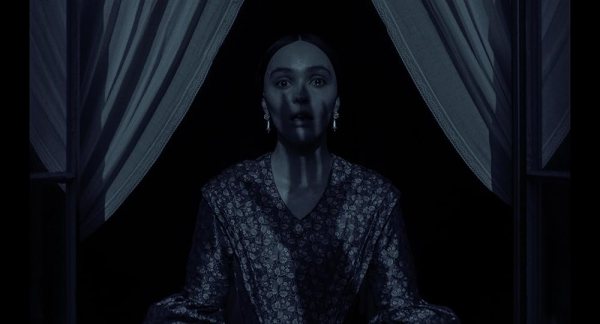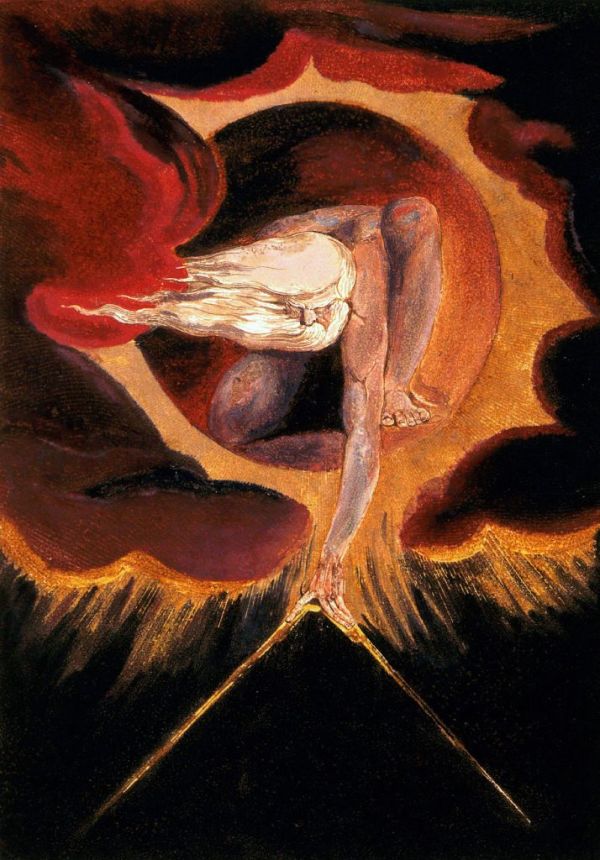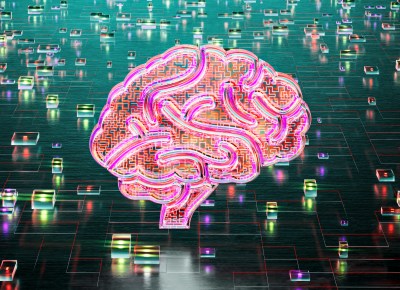While artificial intelligence continues to take the world by storm, Pulitzer-winning playwright Ayada Akhtar unleashed this tempest on the stage. In McNeal, he casts his title role into a high-tech cauldron fueled by alcoholism, family trauma, and AI deceits.
Jacob McNeal—played by Robert Downey Jr. in his Broadway debut—is bedeviled by booze, a Nobel Prize ambition, a dark family secret, and a self-destructive preoccupation with AI. Like the AI dramas unfolding in classrooms and courtrooms across the country, McNeal shines a shaky light on the increasingly blurred lines between what is created and what is stolen.
The action opens in a doctor’s office, where McNeal’s physician delivers stern warnings about his liver. Cirrhosis be damned, though: The doctor can barely get a word in as the writer is glued to his phone awaiting updates about his quest for Nobel glory. McNeal’s overattachment to his smartphone is a sign of our times. But his ongoing dialogue with Siri about everything from his odds of winning the prize and how AI could write a work in the voice of Jacob McNeal seem like portents for our future.
Through Downey’s witty repartee with Siri depicted at the back of the stage on a sleek, gigantic iPhone, the audience gets a hint of AI’s potential and its perils. McNeal gives us a high-stakes example of the high-tech plagiarism that has plagued educators and thrilled students. (Indeed, some 89 percent of students in a Study.com survey reported using ChatGPT at least for homework assignments.)
Driving the plot is Jacob McNeal’s lack of compunction in casting accounts from the Bible, Oedipus Rex, his late wife’s diary, and other flotsam–verbatim—into an AI gumbo for his latest work that raises the specter that he has shamelessly done the same in pursuit of Nobel glory. Beyond his dubious high-tech sampling, McNeal engaged elsewhere in garden-variety theft. Having ripped off his dead wife’s work, he faces the prospect of his extortionate son outing him for his fraud. Only through a counterthreat to expose the son’s incestuous affair with his mother does McNeal protect his professional reputation.
While McNeal played to sellout crowds during a limited run with Iron Man’s casting, the work’s commentary regarding AI is fragmented—not unlike AI renderings themselves. Not only does McNeal unabashedly enlist AI to create a work in his name based on the labors of others, he also asks a chat bot to artificially generate a work written in the text and style of his own voice. While that is a compelling dramatic element—using a computer-generated imitation of your own work as your own work—Akhtar touches on the matter summarily, almost in passing.
While the play gives direct, albeit uncomfortable answers about incest, McNeal does not take on this broader, more troubling question concerning AI’s very foundation. While McNeal may have ended its run, a very real drama is unfolding a couple of miles away at New York’s federal courthouse. In multiple lawsuits, the New York Times, the Daily News, the Chicago Tribune, and a half-dozen other publications have sued Microsoft and OpenAI, charging the defendants with violating their copyrights in a manner that an army of Jacob McNeals could not equal.
The news outlets argue that OpenAI has taken millions of their articles to help build its large language model (LLM), the database that ChatGPT uses to process questions and produce answers for users. So a real world Jacob McNeal could well ask ChatGPT to produce a work like his own if he knew that ChatGPT had already taken his work.
Jacob McNeal might be flattered that ChatGPT would find his work worthy enough to be stolen, but the Times and other plaintiffs do not. Valuations of Microsoft—a large stakeholder in OpenAI—show what is at stake. Microsoft has invested some $13 billion in OpenAI since 2019 for a 49 percent stake in a venture recently valued at $157 billion. Without their copyrighted material, the newspapers convincingly urge, ChatGPT would not know how to think—much less write in natural language.
The Times attempted to negotiate a deal before filing suit, but the parties did not come to an agreement. But OpenAI could also have employed outsourced labor to write up content. The publications contend that not only did OpenAI and Microsoft not want to pay for the work—they wanted high-quality content and language models. Better to steal from the best than pay for bad knockoffs, goes the thinking.
Further buttressing this fraud narrative is evidence that OpenAI stripped off copyright management information (CMI) from materials that were used to “train” its AI systems—programming ChatGPT to process and select information—and that could also be used in reproduced answers. In the cattle business, that’d be removing the brand of another ranch. By comparison, McNeal’s hoodwinking of the Nobel committee seems as sophomoric a fraud as a student’s plagiarized book report on The Scarlet Letter.
If OpenAI’s entire system is predicated on theft from others, then it racks up millions of copyright violations every day—even before a high school senior directs it to plagiarize a book report. Indeed, one of the many allegations the newspapers make against OpenAI and Microsoft is that they enable real-world Jacob McNeals to commit “third-party” infringements of copyright. If OpenAI, for example, knows that some unknown person used its ChatGPT to rip off Taylor Swift or Stephen King, then the tech giant can be held liable as well.
As with any offense, we employ different metrics of judgment. Our sentences should fit the crime. Some may find a scintilla of sympathy for Jacob McNeal. He’s no Maui, no Prometheus who stole fire for mankind—but his crime is mitigated. His principal target was the woman who cuckolded him with their son. His appropriations of Oedipus and her diary thus may be less Promethean theft, and more tragic autobiography. Excusable? No. Understandable? Perhaps.As even ancient myths affirm, the quest for determining what is created or what may be stolen via AI is not an easy one. And, like trade with say the Chinese, there may well be flagrant instances of intellectual property theft as well as more murky or ambiguous incidents like Jacob McNeal’s. Governments have detailed, indeed prolix, codes and case law aimed at the theft of intellectual ideas, but these sources will have to evolve right along with this confounding technology.






Please note that we at The Dispatch hold ourselves, our work, and our commenters to a higher standard than other places on the internet. We welcome comments that foster genuine debate or discussion—including comments critical of us or our work—but responses that include ad hominem attacks on fellow Dispatch members or are intended to stoke fear and anger may be moderated.
With your membership, you only have the ability to comment on The Morning Dispatch articles. Consider upgrading to join the conversation everywhere.